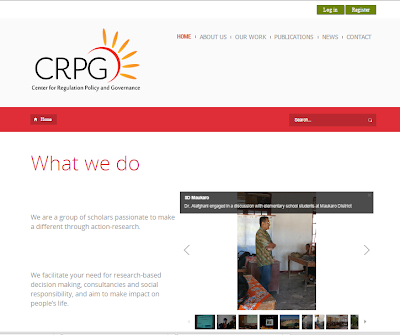Kamis kemarin, Google secara resmi meluncurkan fitur streetview untuk Indonesia. Sebagaimana diutarakan Menteri Mari Pangestu pada tahun 2012, kemitraan Indonesia dengan Google diharapkan untuk dapat meningkatkan pariwisata Indonesia:
“Tourism is such an important contributor to Indonesia’s economy and with the help of features like Google Maps, we hope to promote sustainable tourism by giving people a whole new way to experience Indonesia. We believe this mapping technology will have many different uses – allowing tourists to check out hotels before arriving, make travel plans and arrange meeting points. And with these available digital tools, hotels, tourism sites and businesses can be more creative in making it easier for visitors to find their stores, location and websites.”
Image: Tempo
Namun
Streetview juga mempunyai aspek negatif, yakni intrusi terhadap privasi. Banyak gambar orang ketika sedang melakukan hal yang tidak layak dipandang umum masuk kedalam streetview. Salah satu kasus yang diperkarakan di Amerika dan Eropa adalah pengumpulan data wifi oleh Google. Di California District Court Amerika, Google diputus
bersalah melanggar UU Penyadapan karena mengumpulkan data lokasi dan transmisi wifi. Atas kasus yang sama, Google juga didenda di Jerman.
Sementara itu di Inggris, regulator Keterbukaan Informasi sekaligus Privasi, Information Commissioner's Office mengungkapkan:
"On 14 May 2010, the Commissioner became aware that the data controller’s Street View vehicles (adapted to collect publicly available Wi-Fi radio signals) had mistakenly collected payload data including email addresses, URLs and passwords relating to thousands of individuals. The data controller had intended to identify Wi-Fi networks and map their approximate location using the vehicle’s GPS co-ordinates when the radio signal was received. The aim was to improve the geographic location database for location-based mobile applications."
"In view of the matters referred to above the Commissioner hereby gives notice that, in exercise of his powers under section 40 of the Act, he requires that:
(1) Within 35 days of the date of this notice the data controller shall securely destroy any personal data within the meaning of the Data Protection Act 1998 held on vehicle discs and collected in the UK using Street View vehicles (to the extent that the data controller has no other legal obligations to retain such data) and,
(2) If the data controller subsequently discovers a Street View vehicle disk holding personal data and collected in the UK it shall promptly inform the Information Commissioner."
Masalahnya, Indonesia belum memiliki UU perlindungan hak privasi. Dengan demikian, masyarakat Indonesia akan lebih rentan dilanggar hak privasinya ketimbang masyarakat Uni Eropa yang dilindungi oleh
Data Protection Directive. Memang, dalam UU Keterbukaan Informasi Publik terdapat pengecualian pembukaan informasi pribadi dan terdapat pula sanksi apabila membuka informasi pribadi. Namun penegakan dari sanksi ini masih belum jelas.
Permasalahan lain adalah, kita tidak pernah mengetahui data apa saja yang dikumpulkan oleh Google. Gambar-gambar jalan dan rumah adalah data yang kelihatan, sementara sinyal wifi adalah data yang tidak kelihatan. Maka dari sisi Google sendiri diperlukan transparansi, berapa payload data yang dikumpulkan dan apa saja klasifikasinya.
Tidak semua permasalahan privasi harus maju ke kepolisian lewat jalur pidana atau ke pengadilan lewat jalur perdata. Seperti di Inggris, permasalahan regulasi informasi seharusnya cukup diselesaikan lewat regulator yang kompeten. Karena (i) kebutuhan privasi mendesak, (i) sebenarnya sudah ada sedikit pengaturan di UU KIP dan (iii) Komisi Informasi Pusat sudah beroperasi beberapa lama, menarik untuk dikaji apakah kompetensi Komisi sebaiknya diperluas dalam menangani kasus kasus privasi.
Cara untuk lapor ke Google
Kalau rumah anda, pelat mobil anda atau wajah anda masuk Google Street View, anda bisa
lapor ke Google untuk minta dikaburkan gambarnya. Caranya, masuk ke Google Street View di dekat gambar yang ingin dilaporkan, kemudian click
report a problem. Dari situ anda akan dihadapkan pada beberapa formulir untuk melaporkan keberatan anda.
Biasanya setelah launching, dalam waktu dekat, akan ada banyak koleksi gambar-gambar Street View yang pribadi sifatnya. Setidaknya anda cek dulu apakah rumah anda masuk didalamnya.
Mohamad Mova Al'Afghani
CRPG






Recent Comments